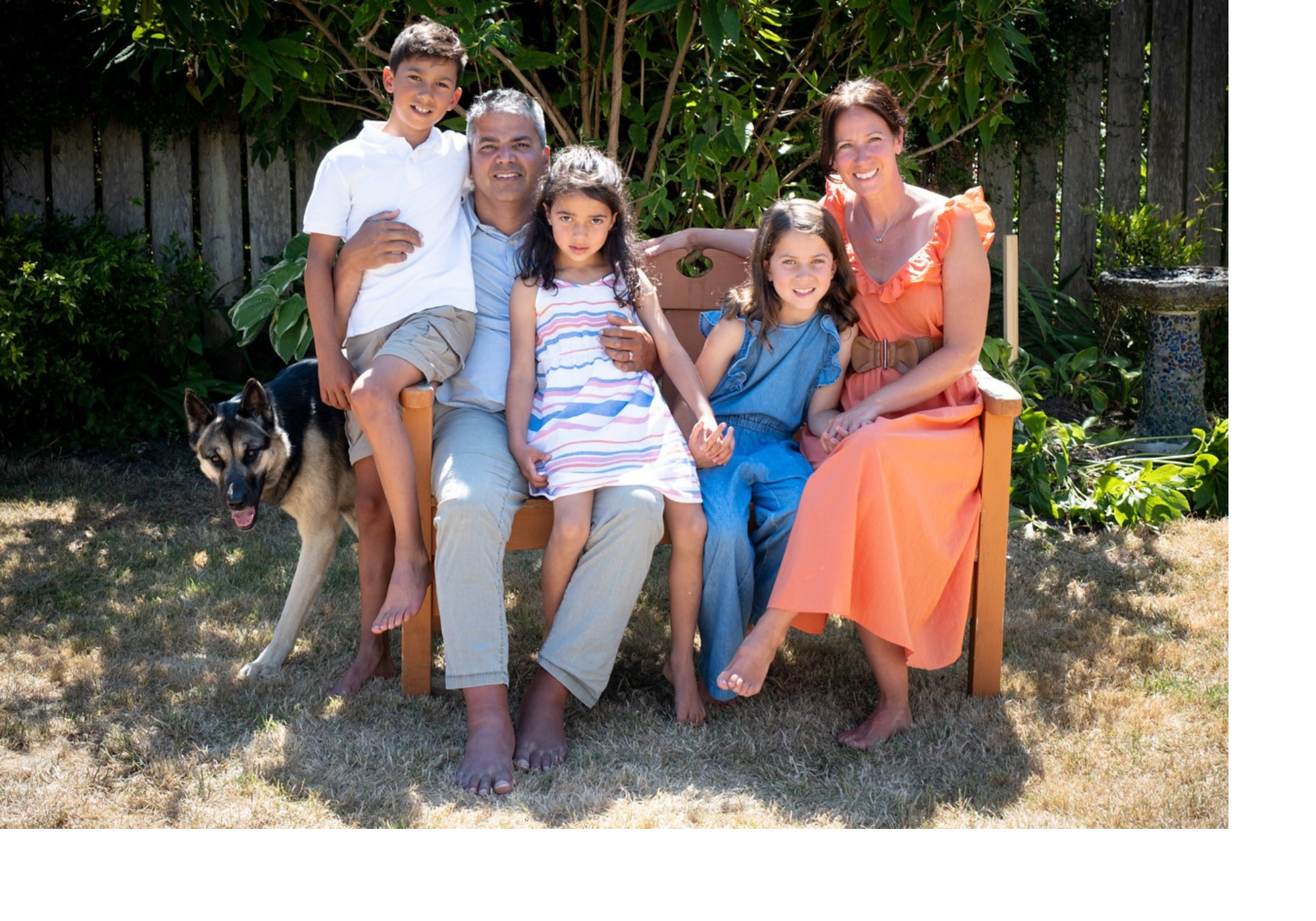Community member and VHF supporter, Rahul Ray shares his healthcare journey in hopes of inspiring donations to help fund MRI upgrades for Victoria General and Royal Jubilee hospitals.
 One morning, in 2006, I woke up, got out of bed, and fell abruptly. My leg just didn’t work.
One morning, in 2006, I woke up, got out of bed, and fell abruptly. My leg just didn’t work.
A series of doctors and testing determined I had Multiple Sclerosis (MS). I googled MS and I thought, ‘wow, this is not going to be good.’
And, initially, it wasn’t.
Very quickly, my physical condition declined. I experienced what is called “foot drop,” which is when you lift your foot to take a step and it drags instead. I was using walls and furniture to support myself, and eventually moved to a cane, then two canes, then a wheelchair. My body was degrading; mentally, I was spiralling.
My diagnosis also came just before my wedding. I spent three months trying to convince my fiancée, Cathy, not to marry me, insisting her life was going to be horrible. She laughed and we got married. That was 16 years ago. We have three little kids, who are now eleven, nine, and seven.
The form of MS I have is called “primary progressive,” which causes a lot of inflammation on the brain and spinal cord. Eventually, I landed with Dr. Kristen Attwell-Pope at the MS Clinic at Royal Jubilee Hospital. Medical imaging using MRI was immediately part of my care plan, providing Dr. Attwell-Pope a precise snapshot of my brain and spine as she guided me through the different treatments available. Some were weekly injections, others monthly, but the detailed scans showed nothing was slowing my decline.
After some time, she said ‘there’s this new treatment I want you to try.’
There was a catch, however, in that the drug could activate a virus, which I’m a carrier of, that attacks the brain. MRI was used to monitor whether that virus remained dormant and if my MS was responding to the new medication.
Every three to four months I went for an MRI scan, to see if there was any new disease activity. For eight years, there’s been no new changes.
Now, I undergo MRI twice a year, before receiving a drug infusion. The type of medication I’m on has changed, and MRI still allows Dr. Attwell-Pope to make micro-shifts in my treatment, if needed. It’s a tool that’s vital in tracking the disease’s progress, or lack of. The truth is, as a patient, to see there’s no new disease activity on the MRI scan is extremely empowering and uplifting.
 Thanks to MRI, advancements in the drugs available, and the support of my family and friends, I’m living a full life with MS. I’m grateful to supporters of the Victoria Hospitals Foundation for investing in the technology that powers my treatment plan. With a gift, know you’re giving people hope, and giving people a fighting chance to be a good dad, a good husband, and a good contributor to our community.
Thanks to MRI, advancements in the drugs available, and the support of my family and friends, I’m living a full life with MS. I’m grateful to supporters of the Victoria Hospitals Foundation for investing in the technology that powers my treatment plan. With a gift, know you’re giving people hope, and giving people a fighting chance to be a good dad, a good husband, and a good contributor to our community.
17 years ago, MS showed up. It has altered my life, but I have learned to live with this disease and find happiness.
—Rahul Ray, grateful patient





